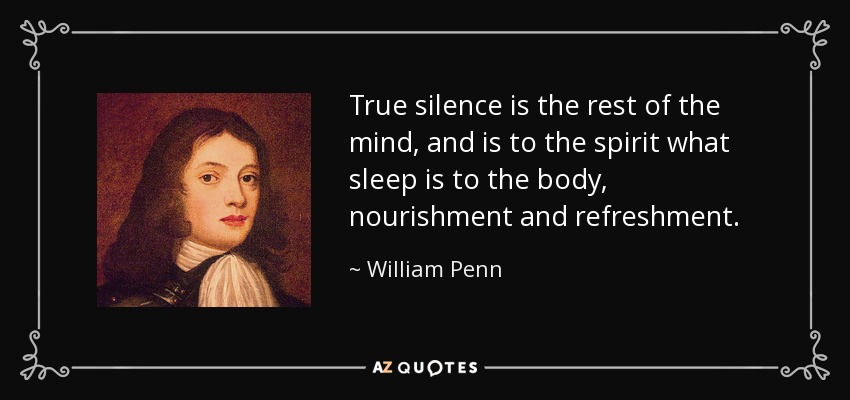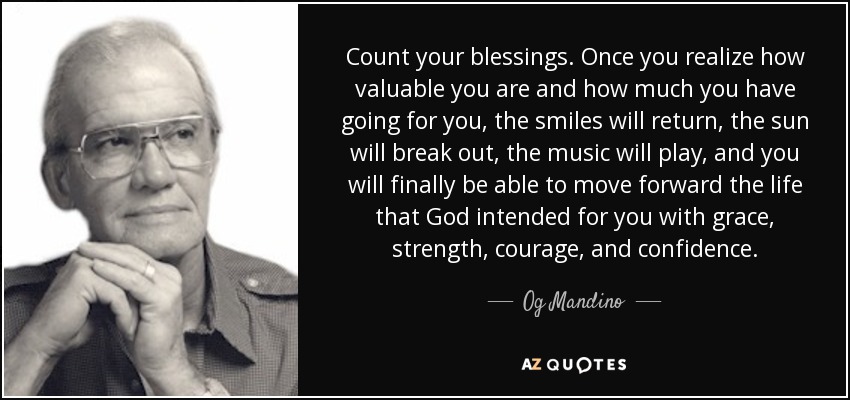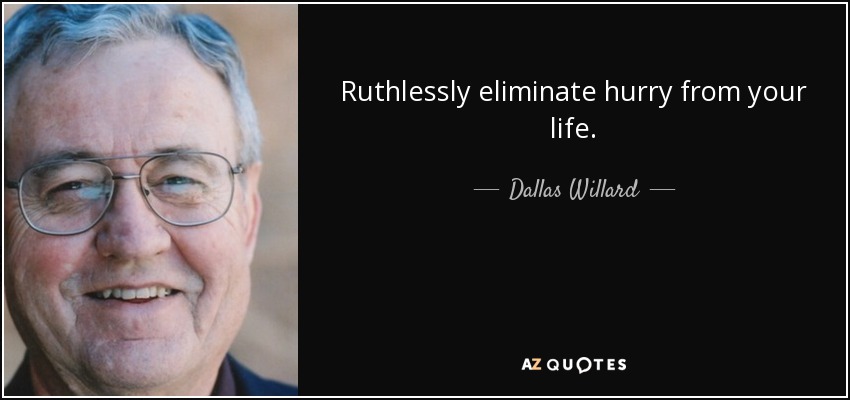Click here to return to Blog Post Intro
The Good and Beautiful God: Falling in Love with the God Jesus Knows by James Bryan Smith (2010)
What Are You Seeking?
How do we become like Christ?
A common belief is that we change by our willpower. When people decide to change something, they muster their “willpower” and set about trying to change some behavior. This nearly always fails. In fact, approximately 95 percent of New Year’s resolutions are broken by the end of January.
Let’s consider the three primary influencers on the will:
- The Mind: what we think in our minds will in turn create emotions, which leads to decisions or actions.
- The Body: a complex inner working of impulses that influence the will, most of our bodily system runs without our help. When the body has a need (food & water) it expresses itself to the mind through feelings (hunger & thirst) and alerts the mind to send a message to the will: Get food now.
- The Social Context: we are highly influenced by the people around us. We call this “peer pressure.”
Jesus shows that we change not by mustering up willpower but by changing the way we think, which will also involve changing our actions and our social environment. We change indirectly. We do what we can in order to enable us to do what we can’t do directly. We change by the process of indirection. We cannot change simply by saying, “I want to change.” We have to examine what we think (our narratives) and how we practice (the spiritual disciplines) and who we are interacting with (our social context). If we change those things—and we can—then change will come naturally to us.
To effect change, we must practice soul-training exercises. Many call these activities “spiritual disciplines,” but Smith refers to them as “soul-training exercises.” They are wise practices that train and transform our hearts. Have you practiced spiritual exercises (such as prayer, Bible reading or solitude) in your life, and if so, with what intention and what result?
Soul Training: Sleep
The number one enemy of Christian spiritual formation today is exhaustion. We are living beyond our means, both financially and physically. God has designed humanity to spend nearly one-third of our lives sleeping.
In Dr. Siang-Yang Tan’s excellent book Rest, he quotes Arch Hart, who says simply, “we need rest more today than ever before in history.” Dr. Tan goes on to show how in the 1850s the average American slept 9.5 hours a night. By 1950 that number dropped to eight hours a night. Today the average American sleeps under seven hours a night.
According to the National Sleep Foundation, 49 percent of American adults have sleep-related problems; and one in six suffers from chronic insomnia.
Are you getting enough sleep?
God Is Good
Have you ever been through a situation that made you doubt God’s goodness?
There’s a common narrative, which claims, “God is an angry judge. If you do well, you will be blessed; if you sin, you will be punished.” This narrative is believed by more than a few people on the fringes of the faith; it is the most prevalent narrative about God among Christians. A study conducted at Baylor University concluded that this is the way most conservative Christians think about God. Approximately 37 percent of Christians believe that God is both “judgmental and highly engaged in the affairs of humans.”
The rabbis in Jesus’ day taught that illnesses were caused by the sins of the parents or of the person who was suffering. When confronted with a man who was blind from birth, they assumed that the blindness was caused by the parents. Jesus was given an opportunity to affirm the dominant narrative, but he refuses to affirm it. His statement that “neither this man nor his parents sinned” made it clear that there is no correlation between someone’s sin and his or her infirmity. If Jesus believed the man’s blindness was a fair and just punishment for his sins (or his parents’ sins), he would have walked away. Instead, he clearly abolished the notion that we “get what we deserve.”
The “punishing-blessing god” narrative is so prevalent and popular because we like control. Jesus refused to affirm the idea that external rewards and punishments are given by God on the basis of our good or bad works. Rain falls on the good and the bad. Terrible things happen to wonderful people. Wonderful things happen to awful people.
Our world is noisy and hurried, and few of us stop to be still. The God who is good can only reach us when we are quiet. To paraphrase the psalmist, we must be “still” to know that God is “good.” This week, try to find five minutes each day to sit in silence.
God Is Trustworthy
The God Jesus reveals would never do anything to harm us. He has no malice or evil intentions. He is completely good. And the fact that God is also all-knowing and all-powerful makes his goodness even better. I can trust God, even if things look bleak.
Jesus addressed God using a unique title: Abba. This is key because Jesus’ use of this title reveals something important about the nature of the God he knew. Abba is best translated “Dear Father.” It is a term of intimacy, but it also contains a sense of obedience. The fact that Jesus addressed God with the word Abba tells us that, to him, God was not distant or far removed, but was intimately involved in his life. Jesus uses this title in his address to God while facing the most difficult hour of his life. He prays, “Abba, Father, for you all things are possible; remove this cup from me; yet, not what I want, but what you want” (Mark 14:36).
What can we learn from Jesus’ prayer?
- God is near: “Our Father in heaven.”
- God is holy: “hallowed be your name.” Holiness has to do with purity. Jesus is teaching us that there is nothing bad about God.
- God is the King who rules heaven.
- God is one who cares for us: “Give us . . . our daily bread.”
- God is one who forgives our trespasses. As Richard Foster notes, “At the heart of God is the desire to forgive and to give.”
- God rescues us from trials and evils—“do not bring us to the time of trial, but rescue us from the evil one.” God is present and powerful because he longs to protect us.
Sometimes we think of fathers as strong and stern providers, and mothers as gentle and meek supporters. But in Jesus’ description of the Father we see a perfect balance of all of these characteristics. In Jesus we see a perfect balance of all of the characteristics of goodness. Jesus is indeed gentle, but he is also strong when needed.
Soul Training: Counting Your Blessings
Counting your blessings is a powerful spiritual exercise. Make a list of all of the things God has blessed you with, all of the things that make life wonderful. Start small: try to come up with a list of ten things God has blessed you with.
Then, keep adding to your list each day. Strive to make a list of fifty things.
God Is Generous
Dallas Willard writes: “The process of spiritual formation in Christ is one of progressively replacing . . . destructive images and ideas with the images and ideas that filled the mind of Jesus himself. . . . Spiritual formation in Christ moves toward a total interchange of our ideas and images for his.”
The dominant narrative of earning God’s favor is a deeply imbedded narrative in our culture and many of our churches. This narrative goes like this: Love and forgiveness are commodities that are exchanged for performance. God’s love, acceptance and forgiveness must be merited by right living. What God most wants is for us not to sin and instead to do good. Henry Cloud says that if you walk into a given church on Sunday you are apt to hear a message that goes like this: God is good, you are bad, try harder.
True, God does not want us to sin, and God does want us to do well. But that is only because sin harms us, and acts of goodness are healing both to us and to the recipients of our goodness. To say that sin has consequences is different than saying that because of our sin God entirely rejects us.
We live in a world where people demand, oppress, wound and condemn. In our world we earn what we get. So we project that onto God. It is easy to conceive of a demanding, oppressive, condemning, wounding god who must be appeased. The God Jesus knows is utterly generous. Brennan Manning put it succinctly: “Jesus reveals a God who does not demand but who gives; who does not oppress but who raises up; who does not wound but heals; who does not condemn but forgives.”
God Is Love
A common belief system today is legalism—the attempt to earn God’s love through our actions, to earn God’s favor or avoid God’s curses through pious activities. In the end, legalism is superstition, not unlike avoiding black cats and ladders. We are drawn to superstitious and legalistic behaviors because they provide a sense of control in an otherwise chaotic world.
Brennan Manning says, “Here is the revelation bright as the evening star: Jesus comes for sinners, for those as outcast as tax collectors and for those caught up in squalid choices and failed dreams. He comes for corporate executives, street people, superstars, farmers, hookers, addicts, IRS agents, AIDS victims, and even used car salesmen…” This gospel seems too good to be true. Jesus’ narrative of unconditional acceptance goes against the grain of the performance-based-acceptance narrative that is so deeply embedded in our lives.
The parable of the prodigal son should really be called the parable of the father’s love. The word prodigal means “recklessly extravagant.” We attach the word to the younger son, the one in the story who spends all of his inheritance on sinful living. But it is the father who is the most recklessly extravagant, offering his wealth to an ungrateful son and lavishly loving the son when he returns. God looks at us with compassion, even when we have done the very worst to God we could possibly do.
There is only one thing that separates us from God, and it is not our sin. It is our self-righteousness. Our self-righteousness does not turn God from us, but us from God. It is not my sin that moves me away from God, it is my refusal of grace, both for myself and for others.
Augustine once wrote, “By loving us, God makes us lovable.” Our worthiness will never be merited, achieved or earned. It is given to us as a gift, and a gift can only be received.
God Is Holy
Richard Niebuhr,who taught at Yale University for decades, pointed out that the modern religious narrative teaches that “a God without wrath brought men without sin into a kingdom without judgment through the ministrations of a Christ without a Cross.”
Integrating God’s love and his wrath is difficult. Most people don’t; they simply decide to go one way or the other. But it is something we must do because Jesus does not allow us to choose one or the other.
We hear that “God is love” and make the assumption that God is crazy in love with us. But love—particularly the wonderful Greek word agape—has a different definition. To love is, in the words of Dallas Willard, “to will the good of another”; it’s not primarily an emotion.
The Anchor Bible Dictionary explains the difference: the wrath of Yahweh is portrayed somewhat differently from human anger in the Hebrew Bible. In some respects, this is essentially the difference between “passion” and “pathos.” Passion can be understood as an emotional convulsion . . . and . . . a loss of self-control. . . “Pathos” on the other hand, is an act formed with care and intention, the result of determination and decision.
Wrath is a necessary reaction of a loving and holy God, a good and beautiful God, to evil. God’s wrath is a temporary and just verdict on sin and evil. As J. I. Packer notes, “God’s wrath in the Bible is always judicial,” and is “a right and necessary reaction to objective moral evil.”
In John Milton’s great poem Paradise Lost, Satan boasts, “Better to reign in hell than serve in heaven.” There is a part of human life that resists relinquishing control to God. If unchecked, this resistance can lead to ruin. C. S. Lewis writes, “It is not a question of God ‘sending’ us to Hell. In each of us there is something growing up which will of itself be Hell unless it is nipped in the bud. The matter is serious: let us put ourselves in His hands at once—this very day, this hour.”
We assume that wrath comes before grace, but that is not the biblical way. God’s first and last word is always grace. Until we have been assured that we are loved and forgiven, it is impossible to address our sinfulness correctly. We will operate out of our own resources, trying to get God to like us by our own efforts to change. God’s first word is always grace. Only then can we begin to understand God’s holiness, and ours.
God Is Self-Sacrificing
Today’s false narrative says that we work our way to God. As noted previously, we live in a performance-based world. We get what we have earned. The world we live in works this way: do good things, good things happen; do bad things, bad things happen.
However, Jesus points out that God works His way to us. Our complete corruption—the state of human beings after the Fall—can only be reversed by the sacrifice of complete incorruption. Jesus was sinless. Jesus reverses the original Fall by doing for us what we could not do for ourselves! By the sacrifice of His own body Jesus did two things: He put an end to the law of death which barred our way, and he made a new beginning of life for us, by giving us the hope of resurrection. Jesus, you see, destroyed death.
Most of us live with the false narrative that strength is found in domination and control. But these are not the highest forms of power. God’s power is made perfect in weakness. That is the paradox of self-sacrifice: by emptying and humbling himself and becoming obedient, Jesus was “highly exalted.”
Jesus said the greatest were those who serve. This narrative is directly opposed to the teachings of the kingdom of this world, where the greatest are those who are served.
God Transforms
In formulating his famous slogan of the Reformation, Martin Luther said that Christians are simul justus et peccator which means, “simultaneously righteous and a sinner.” This was Luther’s way of arguing against the idea that our works merit our salvation. We are saved, justified and reconciled to God—and at the same time we are sinners.
To be forgiven by God, to be initiated in the life in God’s Kingdom, is to be transferred from one narrative—the narrative of death-dealing sin—to the narrative of God’s reconciliation in Christ. The narrative of “I am an awful sinner” must be replaced by the narrative that says, “In Christ I am no longer to be defined by sin. I have been reconciled. Sin has been defeated.”
When a Christian says, ‘I’m just a sinner saved by grace,’ Smith notes, ‘That makes as much sense as a butterfly saying, “I’m just a worm with wings.”
Even though we have become new people spiritually, we still live in our old self’s body, which contains the remnants of sin. We still have our old narratives, our old memories and our old habits. We still live in a world that stands diametrically opposed to the truth of God. This is why we struggle with sin even after we’re regenerated. The best way to prevent the temptation from defeating us is to cling to the indwelling Christ. Jesus said we need to abide in him.
How to Make a Pickle
Hurriedness is an inner attitude that is not necessarily caused by outer circumstances; boredom is one of its symptoms. The solution to the problem is counterintuitive: being present where you are. Being overcommitted, too busy and preoccupied are not new to contemporary society. Martha was confronted with the same dilemma we face every day. Will we take on too many things or be concerned about the wrong things and thus miss the most important things?
Hurry and distraction are nothing new, but in our age we seem to have perfected them. More than at any time in history, we have become obsessed with productivity, speed and efficiency.
Jeremy Rifkin puts his finger on our problem, “It is ironic that in a culture so committed to saving time we feel increasingly deprived of the very thing we value. . . . Despite our alleged efficiency . . . we seem to have less time for ourselves and far less time for each other. . . . We have quickened the pace of life only to become less patient. We have become more organized but less spontaneous, less joyful.”
Ben Franklin’s old adage “time is money” is part of our false narrative. Time, of course, is not money. The narrative behind Franklin’s quote is that productivity determines value. As a result, we live under the “tyranny of the urgent.” This gives birth to the modern obsession with multitasking, doing more than one thing at a time.
In 1967, futurists told a Senate subcommittee that by 1985, thanks to technological advances, Americans would be working twenty-two hours a week for twenty-seven weeks a year. The average worker would retire at age thirty-eight! They predicted we would have too much time on our hands. The reality is that since 1973 leisure time in America has decreased 37 percent.
Jesus told Martha, “There is need of only one thing.” That one thing is listening to Jesus. Jesus did not say that the “one thing” was to obey his commandments (though that will come). The first thing, the one needful thing, is to listen to his teachings. The world tries to pull us away from this important thing. Martha’s way was good, but Mary’s way was better.
Jesus gives us the best example of a well-paced life. In the Gospels, we see Jesus retreating to be alone (nine times in the Gospel of Luke alone). Jesus lives his life in perfect rhythm, the proper tempo, at all times. He will not be rushed. He never does anything in haste.
Soul Training: Slowing Down
Slowing down the pace of our lives means eliminating hurry and limiting the demands and activities in our lives. Then we are more likely to take delight in our lives and make room for God.
For me, this is nowhere more evident in life than during Spring Break. During the break, we generally go on camping trips with other families. This gives us an opportunity to break from the daily routine—and packed schedules—and enjoy time in nature and with other families. While we didn’t take a camping trip this year, we did take time to slow down. We visited Jennifer’s family in Lamesa, Texas—which naturally has a slower pace of life than what we’re accustomed to in Houston.
As Smith points out, “Slowing down the pace of our lives means eliminating hurry and limiting the demands and activities in our lives. Then we are more likely to take delight in our lives and make room for God.”
How are you eliminating hurry from your life?





